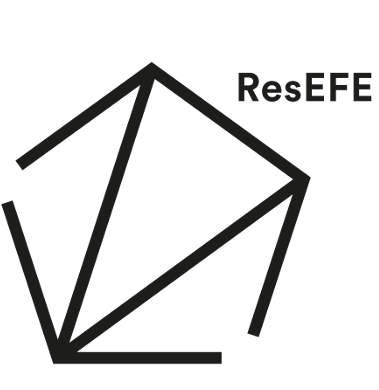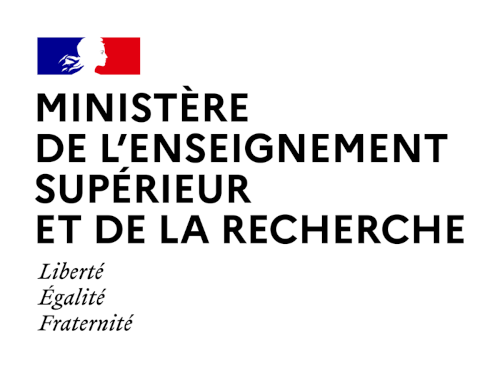Coord.: António DE ALMEIDA MENDES (Université de Nantes/Institut d’études avancées de Nantes), Krystel GUALDÉ (Château des Ducs de Bretagne)
Org.: École des hautes études hispaniques et ibériques (Casa de Velázquez, Madrid), Château des Ducs de Bretagne, Institut d’études avancées de Nantes (ANR, programme "Investissements d'avenir" réf. ANR-11-LABX-0027-01), Programme STARACO (Statuts, Races et Couleurs dans l’Atlantique, Université de Nantes, Région des Pays-de-la-Loire), EA1163 (CRHIA, Université de Nantes).
Coll.: Académie de France à Madrid (Casa de Velázquez), Centre international de recherches sur les esclavages et les post-esclavages (USR CIRESC), Projet européen SLAFNET « Slavery in Africa : A Dialogue between Europe and Africa ».
Venue:
Château des Ducs de Bretagne, Nantes (France)
Registration closed since April 16th 2018 (13h, Madrid time).
Presentation
The word “slavery” shows nowadays its inadequacy to define a reality we are inclined to qualify as universal. The research led in the 1970s on slave trade, slavery, and the colonial societies of the Atlantic space, built the image of the slave as a merchandise, and reduced him to the condition of victim of a capitalist slavery system. The violence of the transatlantic, oriental and trans-saharian slave trades were considered to be as events defining modern slavery. Commercialization of African men and women’s bodies marked a particular moment in the construction of the Black man and woman, as the figure of alienation and dehumanization. However, all of the above is not sufficient to explain what it meant to be a slave.
Multiple experiences, the economic and social complex relationships between a master and a slave, the capacity for a slave to appeal to justice in a slave system, to free himself or herself, to ensure a cultural and economic autonomy for himself or herself, show that slavery cannot be reduced to a theoretical model. Slavery can be explained by the way past societies operated; but new forms of slavery were recreated within new economic and social systems, whereas others have been ignored or forgotten. In Africa, Europe, the Americas as well as in Maghreb or the Middle East, numerous slaves were integrated into societies while still living in uncertain conditions: however, they could always be brought back to their previous conditions or racial status.
This condition of uncertainty was related to the ways in which societies and human relations operated, and was an element of the local representations of slavery and local understandings of freedom. Slavery and freedom: these two notions have always engaged in a dialogue throughout time, either evolving together, or one against the other. After the abolition, social dynamics tend to be extremely complex, and successive post-colonial governments will have an ambivalent attitude towards slavery. Nowadays, the stigma associated with the status of a former slave persists, and allows the continuation of status inequalities, although national legislations formally prohibit them.
This summer school aims at questioning the use of the term “slavery”, in different places, times and contexts. In many ways, the word slavery appears nowadays as the least appropriate to qualify situations, practices or representations that have existed across centuries, and are related to different lands, spaces or social fabric. To what extent can a new reading of slavery in a global context (denied by the history of western modernity), and the reinterpretation of colonial and oral sources, offer new possibilities to a history oriented towards the specificity of context? On what grounds and to what extent can this reassessment of slavery open new heuristic perspectives?
This summer school offers an opportunity for experts of the African, American and European worlds, in residency at the Institute for Advanced Study of Nantes and/or members of the SLAFNET European project, and even invited to Nantes for the occasion, to reflect on the construction of categories, identities, and on the colonial past of the city of Nantes itself.
It concludes the pluri-annual research programme PRALT (PRAtiques de l’ALTérité), and is also is part of la “saison décoloniale”, entitled “ Expression(s) décoloniale(s)” organized at the Nantes History Museum, between April 28th and November 5th of 2018. It will take place from Monday, June 25th to Thursday, June 28th, and consist of public conferences and 4 workshops aiming at international young researchers.
Participants
Yaovi AKAKPO
Université de Lomé (Togo)
Institut d’études avancées de Nantes
Parfait AKANA
Université de Yaoundé II (Cameroun)
Institut d’études avancées de Nantes
Marie-Pierre BALLARIN
Institut de recherche pour le développement (Nice)
Projet européen SLAFNET
Catherine COQUERY-VIDROVITCH
Université Paris Diderot
Myriam COTTIAS
CNRS, CIRESC
António DE ALMEIDA MENDES
Université de Nantes / Institut d’études avancées de Nantes
Projet européen SLAFNET
Céline LABRUNE-BADIANE
Université Paris Diderot
Institut d’études avancées de Nantes
Abderrhamane N’GAIDÉ
Université Cheick Anta Diop (Sénégal)
Institut d’études avancées de Nantes) / Projet européen SLAFNET
Samuel NYANCHOGA
Université Catholique d’Afrique de l’Est (Kenya)
Institut d’études avancées de Nantes) / Projet européen SLAFNET
Felwine SARR
Université Gaston Berger (Sénégal)
Institut d’études avancées de Nantes
Vijaya TEELOCK
Université de l’île Maurice)
Projet européen SLAFNET
Ibrahima THIOUB
Université Cheick Anta Diop (Sénégal) / Institut d’études avancées de Nantes)
Projet européen SLAFNET
Salah TRABELSI
Université Lumière Lyon 2
Requirements and selection criteria
This summer school groups together experts of the European, American and African worlds, and is open to all disciplines of the humanities and social sciences that take a perspective in an empirical approach. The working languages will be French, Spanish and English. Applications from young researchers carrying out their (post)doctoral fellowships outside the France are strongly encouraged.
The 20 participants will be selected on the basis of their academic record, profile and knowledge of languages. Priority will be given to the applicants whose research studies fall within the main topics of the workshop. This is why they will be asked to submit a cover letter explaining the reasons for their application (max. 500 words).
From April 20th 2018, the applicants will be advised of the results of the selection. The selected applicants will be informed of the procedures. After the workshop, they will receive a certificate of attendance.
Candidates will register online using the attached form until April 12th (13h, Madrid time).
There is a registration fee of 50 euros per student. It includes:
- accommodation (shared twin bedroom) for 4 nights (from June 25th to 29th), for the applicants who request it and don’t reside in Nantes.
- Lunches (June 26th, 27th, 28th)
- A welcoming cocktail (June 25th), and a dinner (June 27th)
Transportation costs as well as other dinners will be at the expense of the participants. A support for mobility of no more than 300 euros may be granted to the applicants who request it and who are registered in a university or higher education establishment in Africa or Latin-America.














